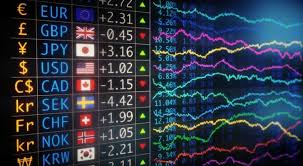
In the dynamic world of Forex trading, choosing the right broker is crucial for success. The right forex trading brokers Global Trading Brokers can provide tools, resources, and platforms that enhance trading performance and strategy implementation. This article explores various aspects of Forex trading brokers, helping both novice and experienced traders identify what they need to thrive in this highly competitive environment.
What are Forex Trading Brokers?
Forex trading brokers act as intermediaries between traders and the foreign exchange market. They facilitate the buying and selling of currency pairs, providing the necessary technology and liquidity to conduct trades. Without a broker, individual traders would struggle to access the Forex market due to the vast size and complex nature of currency trading.
Types of Forex Brokers
Forex brokers can be categorized into several types, depending on their business models and how they execute trades. Understanding these types can help traders make informed choices:
1. Market Makers
Market makers provide liquidity by quoting buy and sell prices for currency pairs. They profit from the spread, which is the difference between the buying and selling price. Market makers can have a more significant influence over trade execution but may involve inherent conflicts of interest as they can take the opposite side of a trade.
2. ECN Brokers
Electronic Communication Network (ECN) brokers connect traders directly to the interbank market. They offer lower spreads and faster execution times and typically charge a commission on trades. ECN brokers are favored by professional traders for their transparency and no dealing desk interference.
3. STP Brokers
Straight Through Processing (STP) brokers automatically route orders to liquidity providers without manual intervention. This type of broker ensures quicker execution speeds and mitigates issues commonly found in market-making models. STP brokers may also charge a commission based on the volume of trades.
Key Features to Consider When Choosing a Forex Broker
When selecting a Forex broker, several factors should be considered. These features can significantly impact your trading experience and success:
1. Regulation
Ensure that your broker is regulated by a reputable financial authority. Regulatory bodies like the Financial Conduct Authority (FCA) in the UK, the Commodity Futures Trading Commission (CFTC) in the US, or the Australian Securities and Investments Commission (ASIC) provide oversight and protection for traders, ensuring that the broker adheres to specific standards.
2. Trading Platform
The trading platform is your gateway to the Forex market. Look for brokers who offer user-friendly and reliable platforms, such as MetaTrader 4 (MT4), MetaTrader 5 (MT5), or proprietary platforms. A good trading platform should provide essential tools like charting, technical indicators, and support for automated trading strategies.
3. Spreads and Commissions
Spreads can significantly affect profitability, especially for day traders who make multiple trades in a short period. Compare spreads offered by different brokers and understand their commission structures. Some brokers may offer zero-commission trading but manipulate spreads, so it’s essential to evaluate the total cost of trading comprehensively.

4. Customer Support
Effective customer support is crucial, especially for beginners who may require assistance. Look for brokers that provide responsive and knowledgeable customer service through various channels, including phone, email, or live chat. Availability of support during trading hours is also a significant factor.
Forex Trading Strategies
Once you’ve chosen a broker, the next step involves developing effective trading strategies. Here are a few popular strategies that traders employ:
1. Day Trading
Day trading involves buying and selling currency pairs within the same trading day. Day traders aim to profit from small fluctuations in prices and must be vigilant, as any overnight positions can expose them to unforeseen market movements.
2. Swing Trading
Swing traders hold positions for several days to take advantage of trends or price swings. This strategy requires less time commitment than day trading and allows traders to capitalize on broader market movements.
3. Scalping
Scalping is a high-frequency trading strategy that involves making numerous trades throughout the day, aiming for small profits on each trade. Scalpers need to have low spreads and quick execution times, making the choice of broker even more critical for this strategy.
Risks Involved in Forex Trading
While Forex trading offers numerous opportunities for profit, it also comes with significant risks. Some of the common risks include:
1. Leverage Risk
Leverage allows traders to control larger positions with smaller amounts of capital. However, while it can amplify profits, it can also significantly increase losses. Traders must manage leverage carefully and understand the risks it entails.
2. Market Risk
The Forex market is subject to volatility influenced by various economic factors, news events, and geopolitical developments. These fluctuations can cause rapid and substantial changes in currency values, leading to unexpected losses.
3. Counterparty Risk
Counterparty risk refers to the possibility that the broker may default on their obligations. This risk can be mitigated by choosing a regulated broker with a solid financial standing and good reputation.
Final Thoughts
Choosing the right Forex trading broker can significantly influence your trading journey. By considering key factors such as regulation, trading platforms, spreads, and customer support, traders can make informed decisions that align with their trading style and goals. Coupled with effective trading strategies and risk management techniques, you can enhance your chances of success in the Forex market.